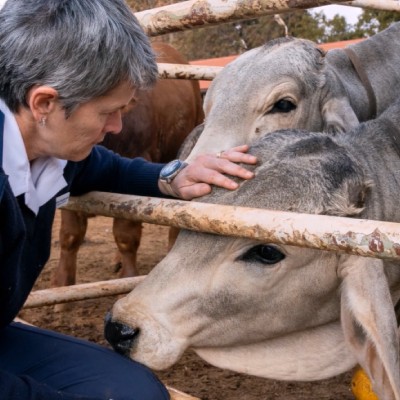Globally, millions of farm animals are utilised to produce milk and other dairy products daily. Cattle are the most widely used although goats, donkeys, buffalo, and other animals form part of dairy production units. The demand for milk and dairy products by consumers fuels the dairy industry, most often at the expense of the animals.
South Africa has enormous commercial and emerging dairy farms which are largely concentrated in the Eastern and Western Cape provinces and Kwa-Zulu Natal. Heifers (female cattle that have not yet had a calf) are forced into gestation generally by artificial insemination at approximately 14 months of age and their gestation lasts nine months. Dependent on productivity, a single cow may be subjected to this cycle from her first insemination anywhere until the age of 13 years old.
Each pregnancy may produce a calf or twins in rare circumstances, but it is a certainty that every calf is removed at birth or within two days from their dams or mothers. Heifers are usually confined in single calf pens for 6 – 8 weeks and then put into groups where they will usually spend the rest of their productive lives in. Bull or bobby calves are not so privileged and are in general sold off within the first few days to anyone willing to spare a few hundred Rands. They often end up living in ominous conditions or are purchased by farmers to be reared as slaughter stock. Their welfare is rarely ever contemplated.

The NSPCA is committed to improving the quality of life of dairy animals and the Farm Animal Protection Unit’s dedicated Inspectorate, guided by the Animals Protection Act No. 71 of 1962 and SANS 1694:2018 The Welfare of Dairy Cattle (South African National Standard), inspect dairy farms across the country addressing different facets of the life of these animals including:
- Inspection of gravid (pregnant) cows/heifers/does (female goats) to ensure basic needs are provided.
- Inspection of calves/kids focusing on physical condition and health, frequency of feeding, water provision.
- Addressing unsuitable crates/pens used for calf confinement and duration of confinement.
- Inspection of animals for signs/evidence of inhumane husbandry practices employed.
- Inspection of milking parlour and equipment as well as monitoring the milking process.
- Inspection of milking herd with focus on welfare concerns such as old/infirm animals, lameness, body score condition, and physical comorbidities likely to compromise the welfare of these animals.
- Monitoring of transportation.

